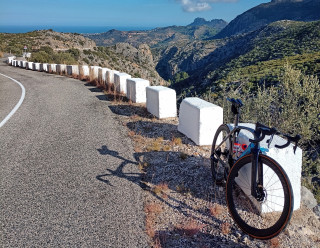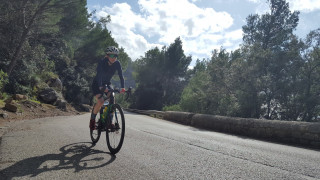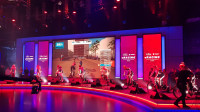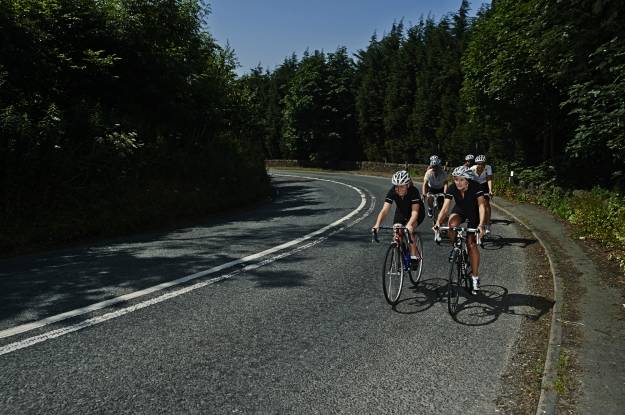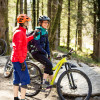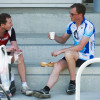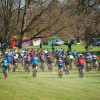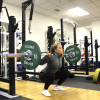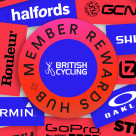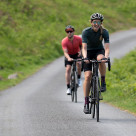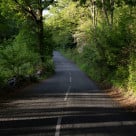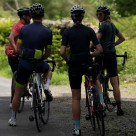Cycling holidays. They can be the highlight of your cycling year and a wonderful way to escape bad weather and short daylight hours to a mecca of smooth roads and lengthy climbs. But how do they compare to a pro rider’s training camp?
We’ve compared a typical day on the bike for Sarah, British Cycling member, regular rider and occasional racer, and Will Perrett, reigning points race national champion and riding for Spirit TBW Stuart Hall Cycling on the road.
Sarah: While I’ve had some brilliant cycling holidays in a few different locations (not all abroad!), I’ve visited Mallorca four times for the range of riding, access to great climbs, short hop on the plane and reliable weather. Mixing things up with a bit of hiking and trail running too, we typically stay in Soller as it’s right in the middle of the Tramuntana range so there is loads of choice (but you always need to start uphill!).
Will: This winter I’ve been fortunate to escape the British winter a couple of times. Firstly, with a Great Britain Cycling Team camp in the Alicante region of Spain and another solo camp in Tenerife. And while these locations have lots of benefits for riding, spending an extended period of time away also reduces external stresses. Not needing to cook, clean and shop, for example, means there is more time to focus on other aspects of performance.
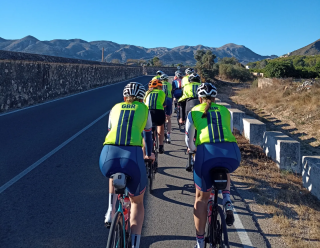
Life on a training camp is normally very regimented, as the coaches say: “consistency is key”. This means the same wake-up times, meal times and training times. The term “living like a monk” feels appropriate, but getting into a routine does make your life easier.
The day starts
Will: In the morning the alarm goes off and depending on the previous day’s training I might spring out of bed or reluctantly roll out. It’s straight to the soigneur’s room, where a coach or physiologist is waiting for us. We jump on the scales and fill out a few wellbeing metrics, such as day-to-day sleep perception and general fatigue levels. These all help track if you’re hydrating and fuelling properly, as well as how you are physically feeling.
Next up is a big breakfast, for me it consists of oats, fruit and jam, I more or less get in as many carbs as possible.
Sarah: The alarm goes off but I’ve been awake for a while thanks to the chickens in the yard next-door. It’s a good chance to think through the route for the day and enjoy the fact it’s already warm! First up is a trip to a local bakery to pick up some ensaimadas (delicious Mallorcan pastries) then the supermarket for water and riding supplies. During breakfast we make sandwiches, then pile up the food, accessories and layers that will go into jersey pockets.
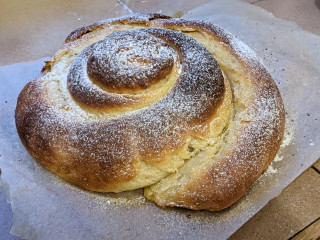
Will: We then kit up and head to the bike room, selecting a variety of on-bike food for our pockets. These will be rice cakes, bananas, bars, sweets and gels, plus our water bottles. Bikes will have been looked after by the mechanics, which means we can jump on and go.
Before rolling out we have a quick chat with the coach reminding us of the day’s session and route, having already been briefed the night before. The coach and mechanic will follow the whole ride in a car in case we need any kit changes, extra food or mechanical help.
Sarah: Once kitted up and with copious amounts of suncream applied, popping hydration tabs into my water bottles is usually the last job. Sometimes we’ll upload a route to follow, but the beauty of Mallorca is you can’t go too wrong, as long as you’ve planned in advance. The roads in the mountains are stunning, but there aren’t actually many so it’s hard to take a wrong turn.
Rolling out
Will: Our session can be anything from three to six hours on the bike. We often roll out as a group, but will perform efforts separately. In the Alicante Region and Tenerife there are a nice selection of long climbs or long stretches of road which don’t have any junctions, traffic lights and roundabouts. These are perfect for performing efforts without interruption, plus I enjoy the scenery and views from the climbs - which certainly beats looking at the turbo room wall for five hours!

Sarah: Out of Soller the Puig Major climb is almost 14.5km with an average gradient of 5.8%. While that’s quite the start to the ride, it actually looks after your warm-up (if you take it steady in a small gear) and gives you plenty of road for an effort in the latter stages. Our route stretches out to Cap de Formentor today – an iconic out-and-back destination with a very recognisable lighthouse.
Port de Pollenca is our lunch stop, with plenty of sea-front restaurants to choose from. And while it’s tempting to dwell and watch the boats, there is a lot of riding still to get back. We head back up to Lluc via Caimari to take in some different roads (probably stopping for a can of pop at the top), then after a long undulating section there’s the option of taking in the epic Sa Calobra climb. That’s one for another day! The descent back into Soller is down the same climb we started on and it’s long, flowing and loads of fun.
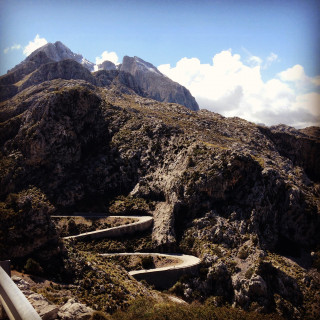
Post-ride
Will: Once back from training, bikes are taken care of, a recovery drink will be sat there waiting for you, and food in the hotel will be ready to eat straight away. Refuelling soon after exercise is vital for recovery.
The afternoon consists of maximising recovery, which is quite easy when you are very tired from the days training. Depending on the day we may receive a sports massage from the soigneurs, which I’m convinced is their way of getting back at us for cleaning our washing all week. It’s 45 minutes of them thrusting their thumbs and elbows deep into our muscles, and in my case, them laughing while I squeal and pull faces.
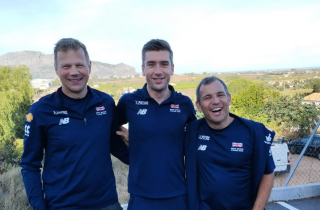
Sarah: Once back and showered we eat something straight away and have something to drink, making sure we’re keeping on top of hydration. Then it’s some well deserved time at the pool we deliberately booked our villa for, plus a chance to read, relax and start thinking on the riding plan for tomorrow.
Then in the evening we walk into Soller for a meal, enjoy some drinks and an ice cream while sat in the square watching everyone enjoying the balmy nighttime temperatures.
Will: Before our evening meal we’ll tend to have a team meeting to go over the day’s session and the plan for the following day. Then we eat. No cooking, no washing up, just refuelling.
The evening will be downtime, which will consist of a quiet evening in. For me it’s a good time to video call family and friends, and catch up on what’s been happening outside of the training camp bubble. Then we’ll get an early night and hopefully a good sleep, before we do it all over again.
Feeling inspired?
Join the British Cycling Travel Club for discounted cycling holidays sent straight to you fortnightly by email, organised by the experts at Sportive Breaks.
